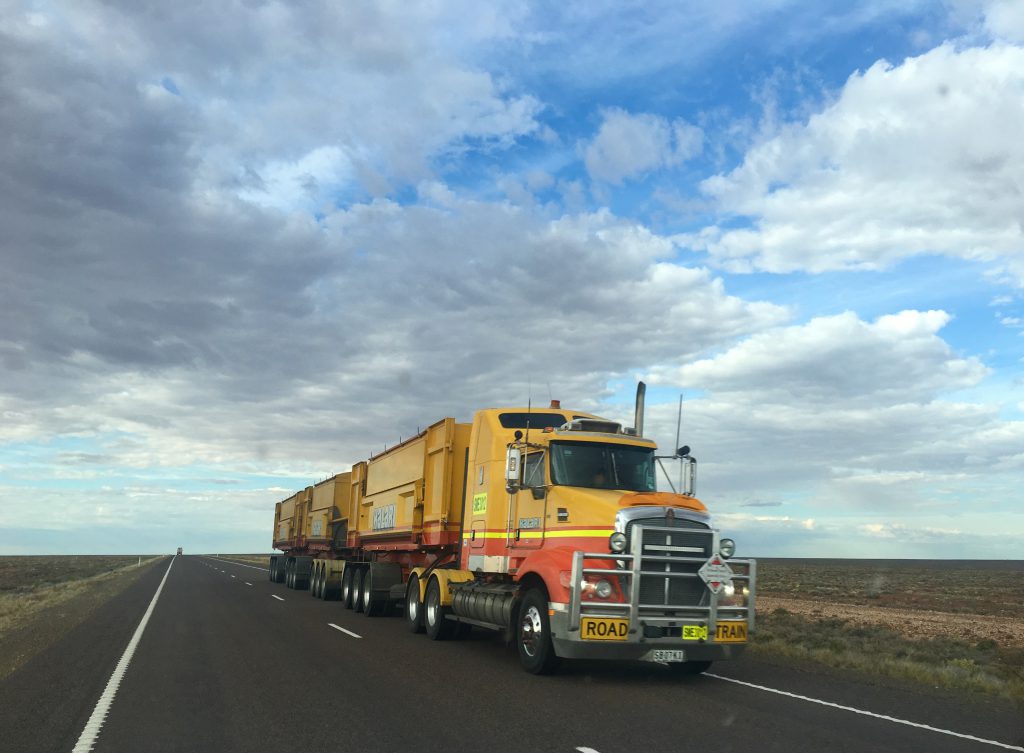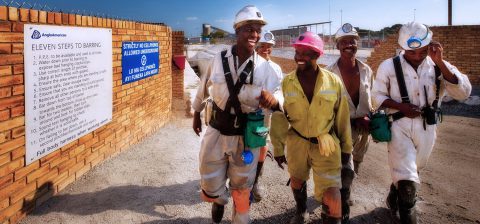Freight, Logistics and Warehousing
Under Pressure
The amendments introduced to the road freight and logistics industry sector codes in 2016 require companies to up their efforts in the area of broad-based black economic empowerment (B-BBEE); but how far, exactly, is the industry from reaching its transformation goals?
Professor Stephan Krysgman, associate professor of transport economics at Stellenbosch University’s department of logistics, has a rather damning answer to that question, “The industry is not really transformed,” he states. “While there might be strong representation at the blue collar level, which includes truck drivers and warehouse workers, there is still a lot of work to be done when it comes to company (asset) ownership.”
It makes sense, therefore, that the changes ushered in during the past year focused on weightings in the areas of equity ownership, management control and skills development. Even so, Krysgman fears that these measures may not be enough to foster genuine transformation.
“There is no real, specific charter for the freight industry to support transformation,” he argues, adding that he is unsure of just how impactful the B-BBEE Codes of Good Practice developed by the Department of Transport, have been.
It’s a long and winding road
Shirley Duma, human resources director at Barloworld Logistics, agrees that the road ahead is a long one. She echoes Krysgman’s concern that transformation isn’t taking root at leadership level, because “it requires diverse leadership talent to drive meaningful transformation, innovation and positive change.”
But why, exactly, is the journey such a difficult one? “For many South African businesses and leaders, the current socio-economic and political climate is a source of uncertainty and the rapid pace with which this climate is shifting requires new thinking if we are to achieve our transformation goals,” she says. “One of the major problems is that the continual flux of market and social dynamics means that the approaches which were relevant last year are less effective now.”
Will the new sector B-BBEE codes have the desired impact? Duma’s outlook is optimistic. “The transition from the old codes to the new provided an opportunity to optimise our initiatives,” she says, adding that for Barloworld Logistics, this transition was eased by the announcement of the revised generic codes, which helped the company prepare and adapt the sub-sector codes that are applicable to the business. The organisation has accordingly made use of the recent months to align initiatives and ensure that the principles and calculation methodology are responsive to the revised codes.
Too many barriers
Krysgman, on the other hand, takes a harder view. “One of the major challenges facing the industry is its capital-intensive nature. Often, becoming a player depends on your ability to secure long-term contracts; and this is always based on past performance, particularly in the fast moving consumer goods market, where reliability is of the utmost importance.” The problem is that such contracts are typically negotiated between truckers and retailers; and relationships and trust carry just as much weight as past experience.
Establishing relationships of this nature takes time and effort. Moreover, if an individual is fortunate enough to secure a contract, a high level of skill is also required to manage the business and its performance – scheduling trucks and assignments, setting prices that ensure long-term viability and even completing the necessary paperwork can be done only with a degree of industry knowledge. This makes for an industry that cannot be entered unless you have already invested hundreds of hours and established contracts. Add in the technological developments that are beginning to change the industry’s landscape, and you have yet another barrier to real transformation.
It’s a difficult conundrum to address. Krygsman’s solution would be to introduce a transformation charter that addresses the entire logistical chain, from truck operators to truck owners and even players in the retail industry, rather than concentrating efforts in only one area.
Sound foundations
That said, Krygsman says that there are already “some positives and concepts that can be built on”. These include the establishment of owner-driver companies, as well as the industry’s collaboration with larger retailers to stimulate B-BBEE scorecard “points”.
Krysgman would like to see these initiatives taken even further, perhaps with various entities forming partnerships in this regard. “The state also has a large role to play, most notably as an employer, but also potentially in assisting with the establishment of companies. Another alternative is to privatise some of the state-owned entities in the tracking and logistics industries, ensuring they operate according to clear goals and principles.”
He cites Transnet’s example as a sizeable, and a very important, industry role player. “I think the biggest benefit could be obtained if the state were to use its own resources and footprint to drive industry transformation.”
Duma, meanwhile, also calls for greater industry collaboration. While the development of relevant programmes will undoubtedly contribute to the process, as will ensuring that awareness of the transformation agenda remains top of mind, real rewards will follow if leaders share best practices and draw on resources and support both within and outside the logistics sphere.
“Logistics is an industry that is right at the heart of our economy, so we have a massive responsibility to set an example,” Duma concludes.






 Sign-up and receive the Business Media MAGS newsletter OR SA Mining newsletter straight to your inbox.
Sign-up and receive the Business Media MAGS newsletter OR SA Mining newsletter straight to your inbox.